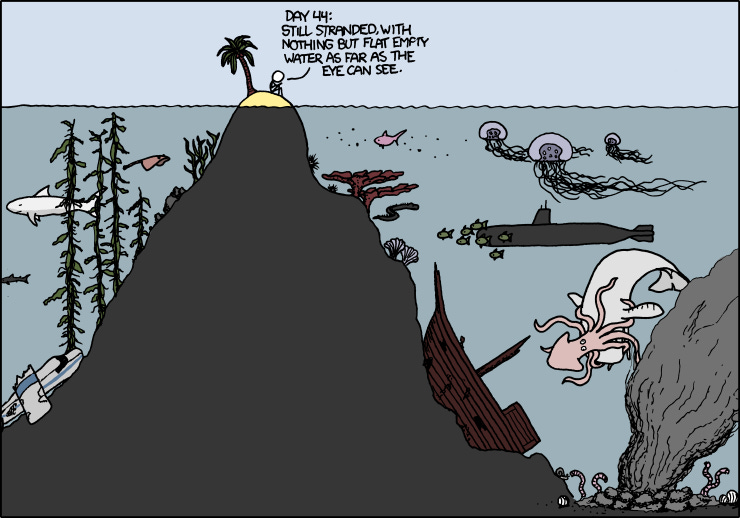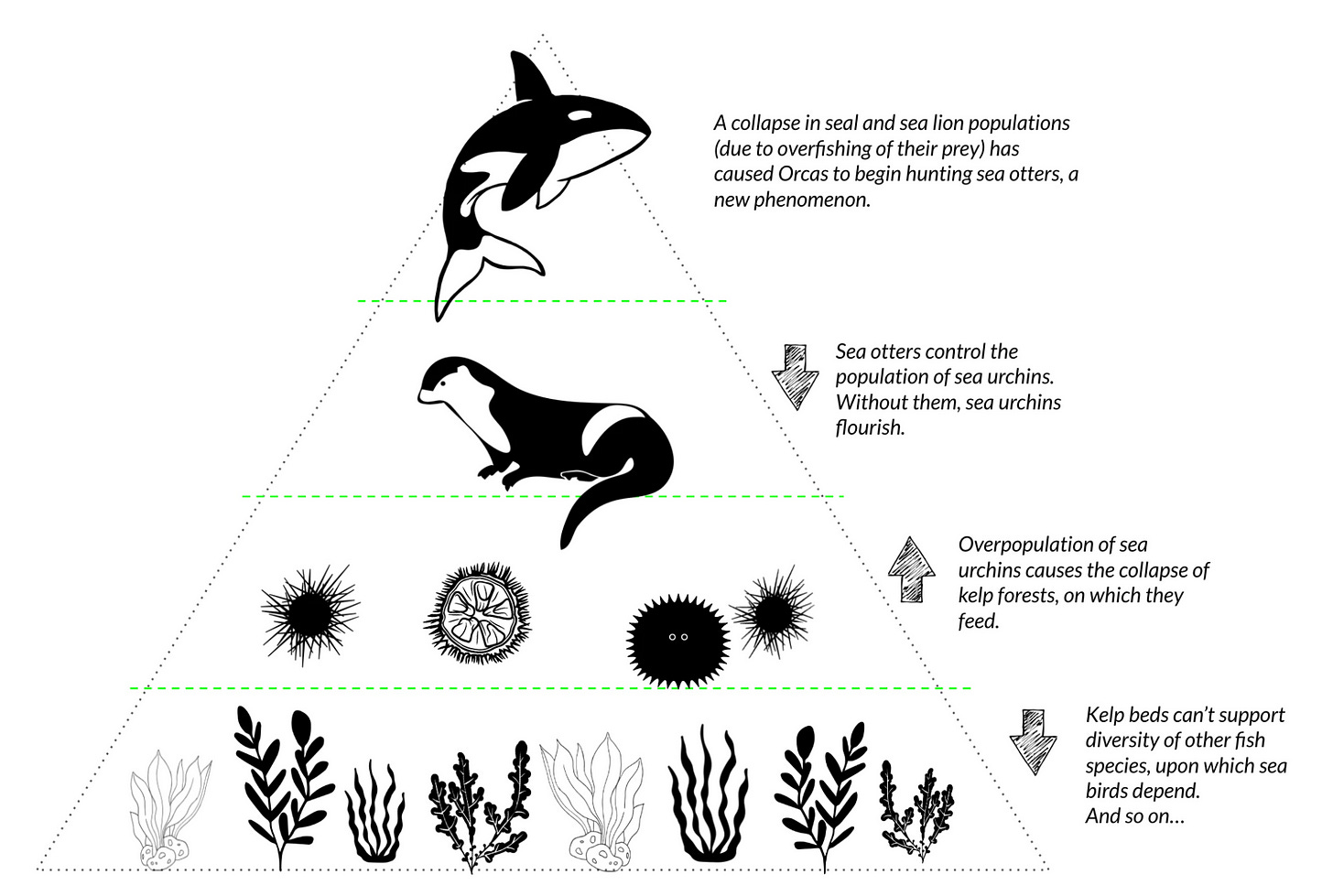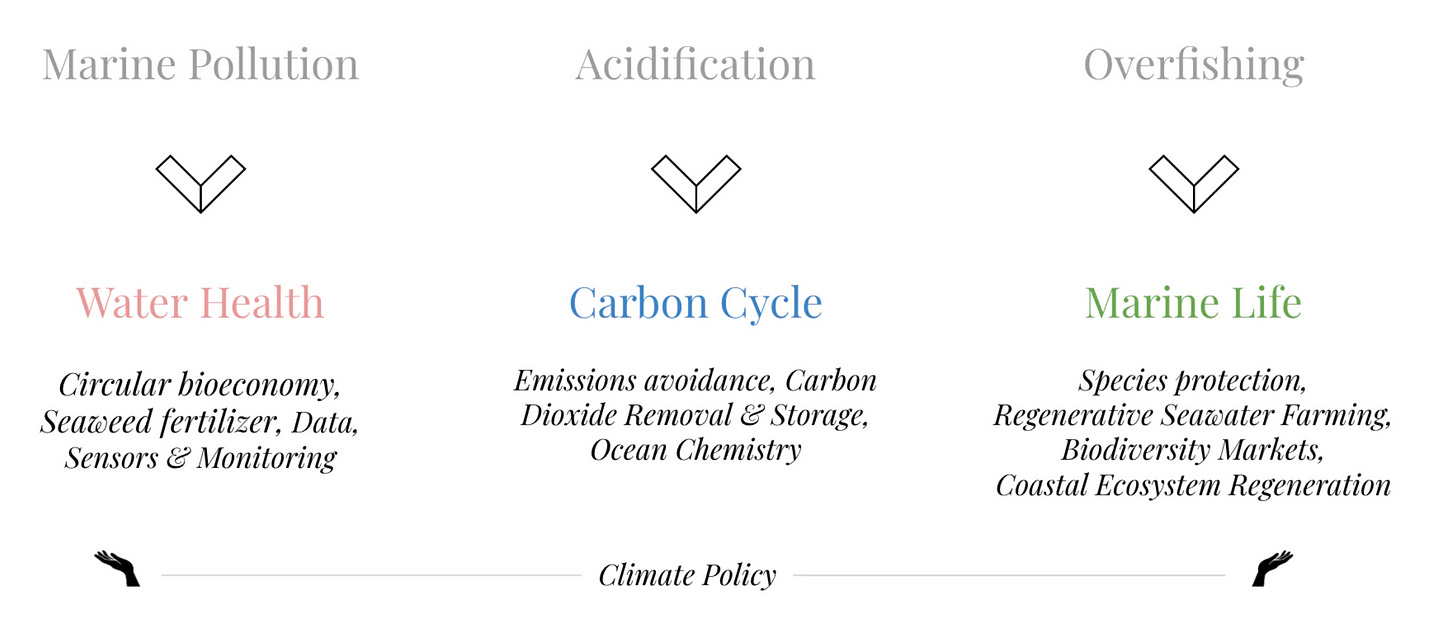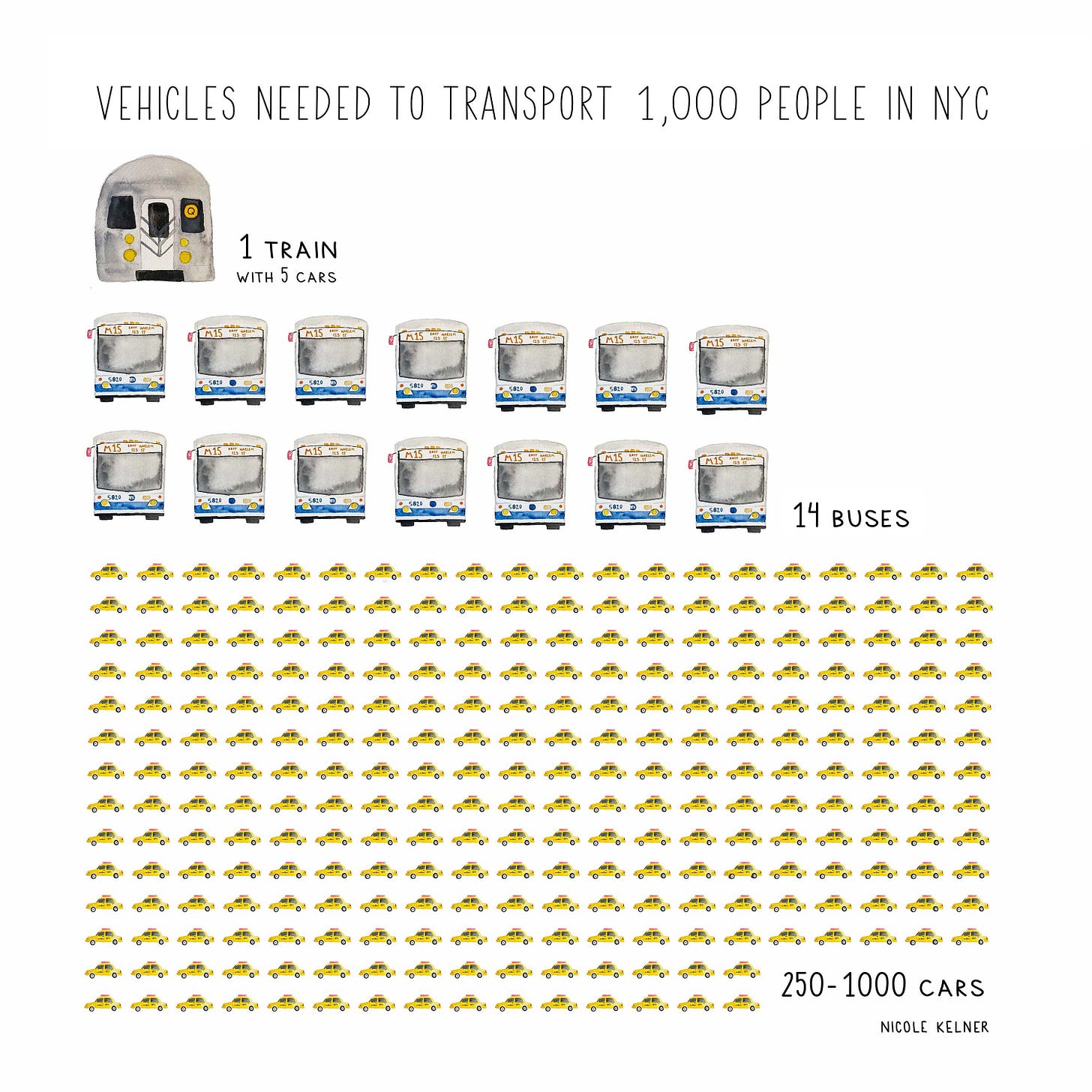Throw Your Money in the Ocean
by Irene Polnyi, Executive Director of the Institute for Abundant Oceans
We live on a water planet, but mostly on the land parts. As human beings, we are biased towards the things we can directly see and understand, and this bias is blocking a world of climate change opportunities awarded to us by the ocean.
I’ve built a career in understanding business categories and finding an advantage. As I began exploring this landscape, I noticed oceans were being overlooked by almost everyone: VCs, philanthropists and even career switchers looking to work on climate.
While VCs pour billions into the clean tech industry ($40B last year), ocean funding is barely tracked. Last year’s figures from the CleanTech Group estimate it as little as $25M, about .06%. Philanthropists did a bit better; of the approximate $10B in philanthropic climate grants, $212M went to oceans funding, still only about 2%.
And yet, according to the World Resources Institute, ocean-based opportunities can play a huge role in stabilizing our climate. Scaling ocean renewable energy, restoring coastal ecosystems, improving fisheries practices and decarbonizing ocean transport can collectively reduce emissions by more than 50 Gt CO2e per year, 21% closer towards our goals in 2050.
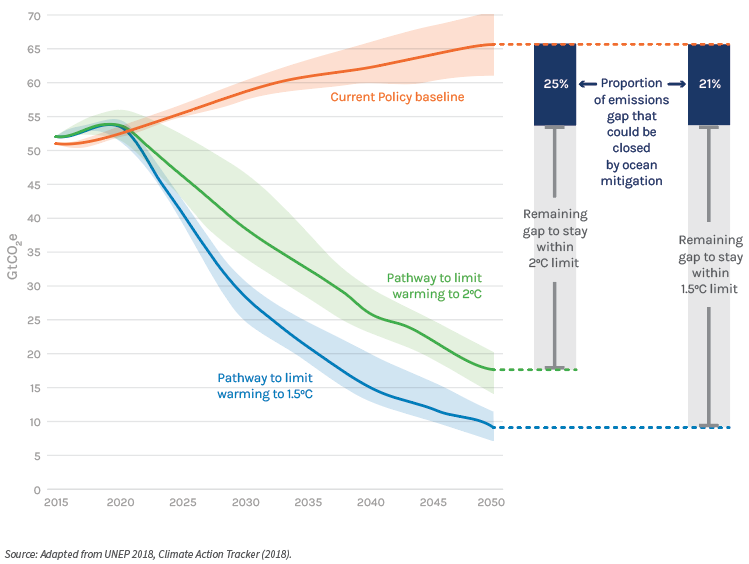
Most importantly, ocean based solutions are lucrative for investors while offering social and ecological co-benefits unique to the ocean. Sequestering carbon, restoring ecosystems and rebuilding coastal economies work in a virtuous cycle, where increased biodiversity creates healthier and longer lasting carbon sinks.
Many climate newcomers I’ve spoken with simply don’t have the ocean context they need to understand these topics and what it means for them. I developed this next section with them in mind.
Ocean Primer for Land Lovers
The ocean is an essential partner to reverse climate change, but to learn how, it’s useful to understand why people are worried about its health. Human activity interrupts delicate ecosystems, creating three big points of pressure.
Pressure 1: Marine Pollution
Scientists believe chemical and plastic pollution is responsible for the loss of half of all marine life. Fewer marine plants means less photosynthesis and oxygen for the planet, and fewer animals that depend on them for food.
Agricultural runoff of industrial and consumer chemicals can be devastating even in small quantities, yet 80% of all wastewater is still untreated.
Poisonous plastics break down and enter the food chain, in some cases even being preferred by corals over real food!
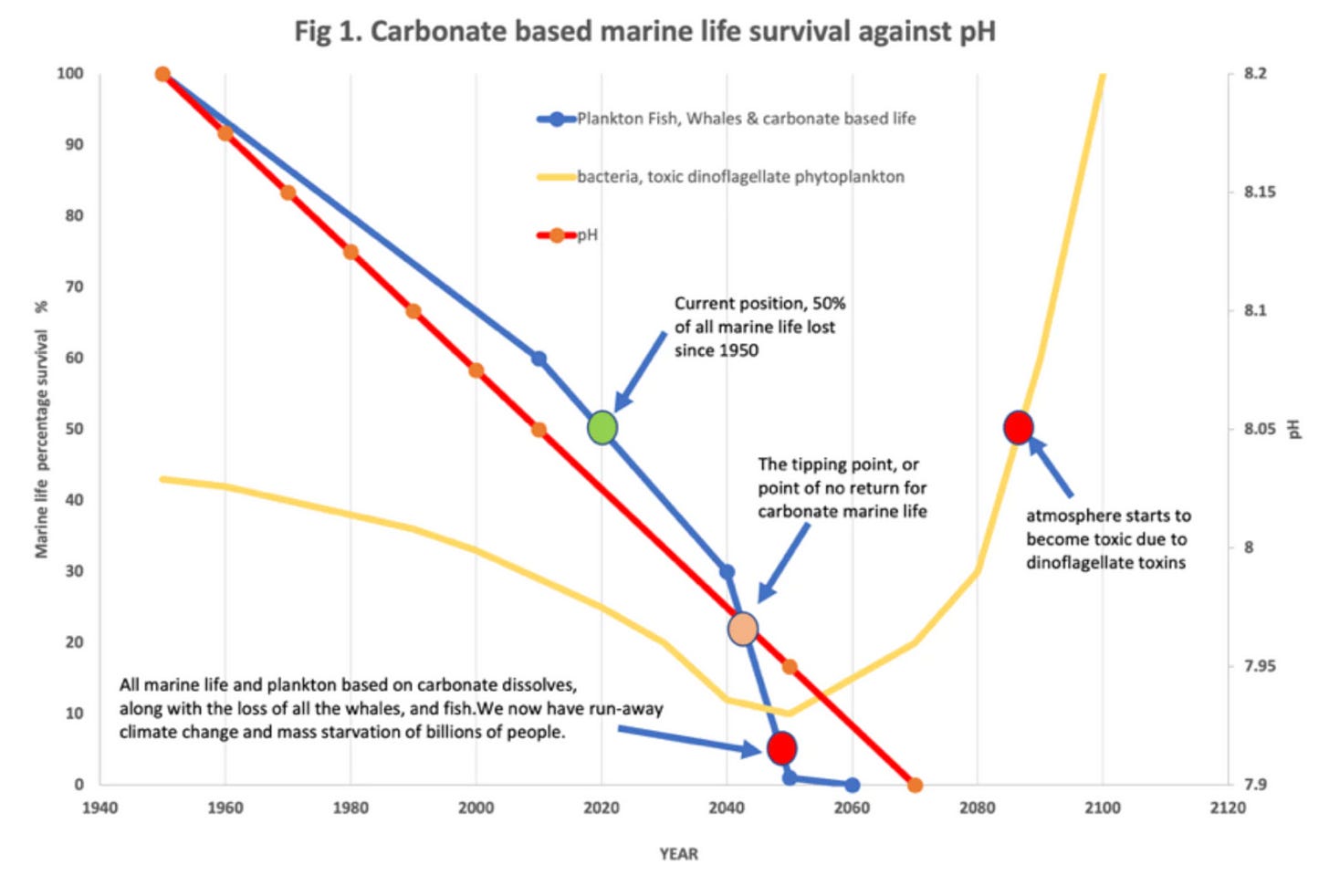
Pressure 2: Acidification
In geologic timescales (meaning, earth time) the ocean would solve climate change on its own. But too much CO2 drops the pH of the ocean, what is referred to as acidification.
Acidification is dangerous because it targets the base of the ocean food pyramid. It starves tiny plants and animals of the carbonic ions they need to survive, creating a cascading effect on other marine life and opening the door for growing toxic bacteria.
Pressure 3: Overfishing
Fishing too much and in the wrong way is creating what’s called a biodiversity crisis in the ocean. When humans fish too high up the food chain, it has far reaching consequences referred to as the trophic cascade, a collapse in deeply connected ecosystems. In addition to overfishing, industrial fishing methods can damage ecosystems where fish respawn, sometimes taking hundreds of years to recover.
According to the Global Oceanic Environmental Survey, the ocean could sequester twice as much carbon if marine life was rebuilt: 6 Gt / year, instead of today’s 3 Gt/year.
Indexing the Ocean’s Climate Solutions
Let’s find some answers, shall we?
Here is how I think about the solutions within the context of the problems they address:
Like most climate problems, we have many good ideas for how to address these challenges. We can divert pollution with plastic and chemical alternatives and closely monitor our ocean’s health. We can reduce carbon emissions with renewable ocean energy and extract CO2 from air and ocean with a dozen new methods. We can protect species and Rebuild Marine Life by restoring natural habitats and sustainably managing fish stocks. We can do it all and rewrite our future. We only need the political will to see them through, and the courage to make trade offs against real or perceived economic conveniences.
If you’re pumped to learn more about the ocean’s climate answer, check out this blog post or this friendly deck. It includes deep-dives into the pathways that I think are most promising in the ocean carbon category.
Get in touch with me: I’m interested in new ocean x climate opportunities, hit me up: irenepolnyi@gmail.com, twitter or linkedin. Learn more about me and how I got into this work here. Thanks for reading!
✍️ The Draw-down
Weekly climate art by our MCJ Artist-in-Residence, Nicole Kelner. Don’t miss the next Climate Art Workshop TODAY at 3pm PT. Details here.
🍿 The Lean Back
Learn about Swift Solar in the latest Pique Action film.
🎙My Climate Journey Podcast
🚜 Yin dropped the second episode in our Skilled Labor Series and spoke with Josh Svaty, a farm owner and operator, about his views on regenerative agriculture and promising trends in agricultural innovations.
🎥 Cody caught up with Dave Finocchio and Anna Robertson, co-founders at The Cool Down, about the gaps in climate communication, what audiences they are targeting, and how they plan to monetize The Cool Down.
🌏 Jason talked to Sue Brown, Executive Group Director of Sustainability at Worley, about the mix of project work from traditional industries versus cleaner sources, how that mix is shifting over time, what barriers are holding back the transition and what we can do to unlock faster progress.
✨ Highlights
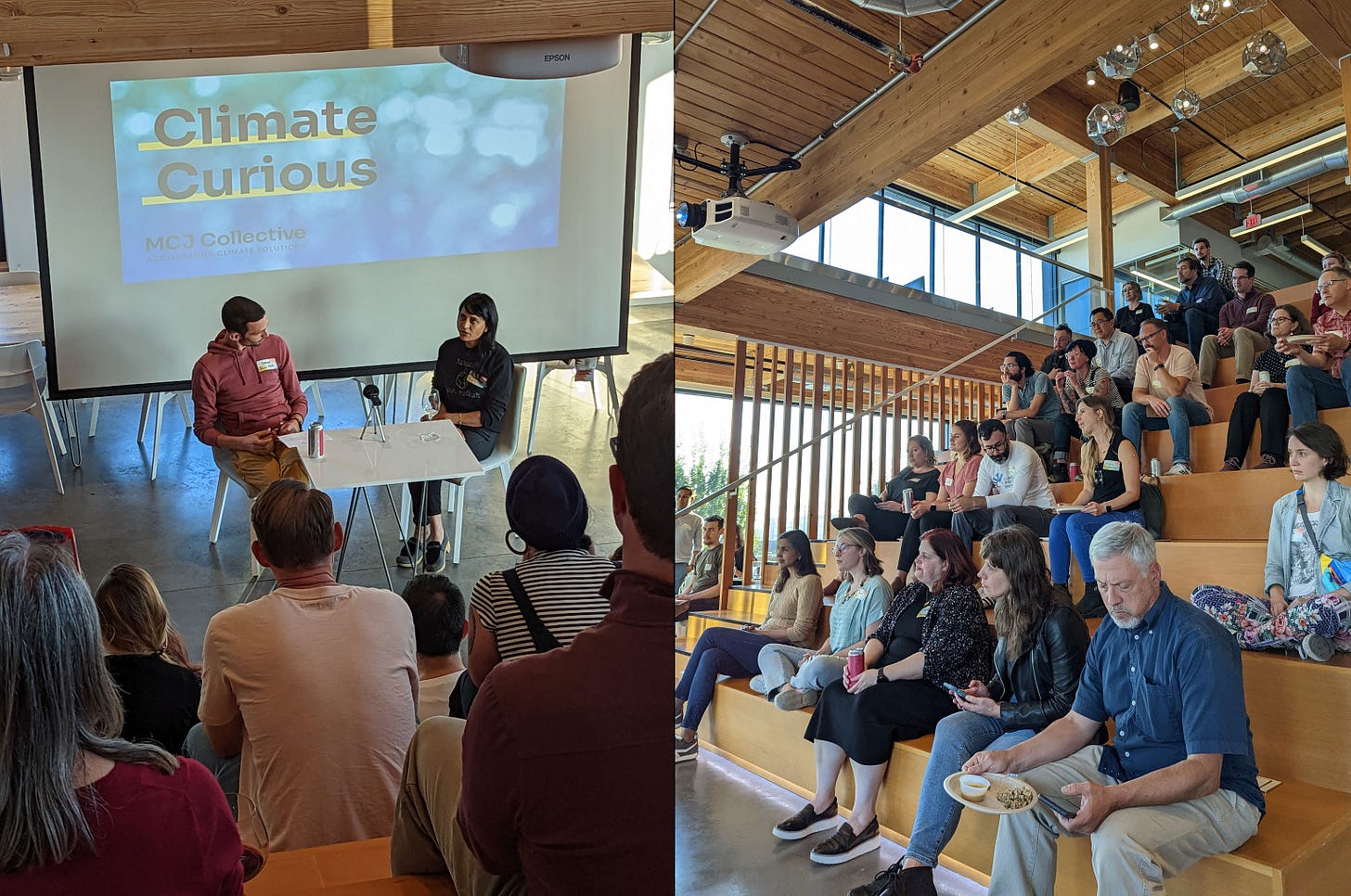
Congrats to Lilac Solutions on being selected by the U.S. Department of Energy for a $50 Million Award to Unlock U.S. Lithium Production
gener8tor announced its Fall sustainability accelerator of 6 companies working at the forefront of our climate crisis.
Propeller — a new climate-tech fund founded by Brian Halligan, Co-founder and Executive Chairperson of HubSpot — announced an inaugural $100 million fund to invest in and build ocean-climate companies.
🗓 October Events
For more climate events, check out the #c-events channel in MCJ Slack.
📚 MCJ Book Club: Hosted by Weldon Kennedy, Reading All We Can Save (10/26)
💁♀️ Women in Climate Meetup: Monthly meetup for women who work in, or want to work in, climate. (10/26)
☀️ MCJ San Diego Meetup: Super casual event for any folks in the San Diego area interested in building community, chatting about climate solutions, etc. Non-members welcome! (10/28)
🎓 MCJ Early Career Meetup: Participants will have conversations in small break-out rooms and hear from some others who have experience navigating working in climate post graduation. (11/02)
MCJ Climate Voices is a free weekly email curating news, jobs, My Climate Journey podcast episodes, and other noteworthy happenings in the MCJ member community.
💭 If you have feedback or items you’d like to include, feel free to reach out.
🤝 If you’d like to become an MCJ community member, apply today.


